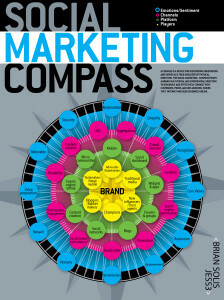Company culture is a marketing tool that can be used to attract customers. The “company culture campaign” is an advertising technique that uses company culture to sell products and services.
Businesses have been using culture to sell their products since the beginning of time. While this may seem like a recent development, it’s actually not. In fact, some companies used “culture” as a marketing tactic as early as 1935! With the rise of social media and digital advertising these days, savvy marketers are implementing company culture in creative new ways to lure customers into buying what they’re selling.
When it comes to marketing your company, you have a variety of options, but the objective is the same for all of them: to reach out to your target audience and persuade them that you are the right fit for them. Unfortunately, many companies neglect one of their most valuable assets: their own culture.
Create a culture for yourself.
It may be difficult to identify a company’s culture. It is a mix of the company’s internal goals and motives, as well as how prospective consumers or clients view it from the outside. Including the most essential elements of your organizational culture in your marketing strategy may offer you a significant competitive edge.
Similarly to how the ideal consumer differs from one area to the next, company culture varies greatly between industries. Putting this element of your company to good use may provide you a competitive edge. Take a look at the distinctions between Apple and Microsoft. While both manufacture devices that perform comparable tasks and have their own set of benefits and drawbacks, one sells them for about twice the price of the other, and their consumers are completely loyal to them.
Determine who you want to reach out to.
While Microsoft has attempted to appeal to all customers by maintaining a professional culture and a relatively conventional brand identity, Apple has openly embraced young culture and attempted to present itself as a “alternative” brand. They’ve snatched early adopters away from their major rival by creating and promoting their goods as fashion accessories and status symbols rather than tools or technology. This approach has elevated them from a relatively obscure brand to one of the most well-known in the world.
You might conceive of corporate culture as your company’s personality. Whether they realize it or not, your target consumers are searching for a particular kind of company to visit. They should be able to relate to you and perceive you as a business that shares their values and goals. You should be contacting them on their territory, as it should seem to be yours as well. Is it more convenient for them to buy online or in person? Do they receive their news from conventional newspapers or from the internet? Understanding them is the first step in reaching out to them in the places where they are most responsive to advertising.
Feel free to express yourself.
The usage of a spokesperson is a great method to market your brand via your corporate culture. This may be the founder or CEO, or someone else who personifies the finest and most attractive elements of your brand’s identity. A spokesperson will give your business a human face and a tangible representation of your objectives and values. Choose someone that represents your ideal client base if at all feasible, as this will convey not just your culture, but also its commonalities with your customers.
In cultural marketing, visual branding will also be essential. The appearance of your logo and advertisements will have a significant impact on how prospective consumers view your business. Because their clients will be of all ages and interests, a business providing home medical supplies should use quite different visuals than one offering kids school supplies, for example.
In 2009, the SciFi Channel chose to rename itself as SyFy, which was an example of focused marketing. They claimed that this would reduce misunderstanding about capitalization, although science fiction enthusiasts were not puzzled until after the change. They were aware that the name was a contraction, but they thought the new term had no significance in the context of their business relationship. The actual aim of the move seems to have been to prepare for a larger shift, since the network was transitioning away from conventional programming and toward reality television. While their initial audience loved and understood their traditional identity, they thought it was essential to make the change in order to expand their reach.
The key thing to remember is that your business is always presenting a cultural image, and if you don’t have control over it, you’re doing yourself a disservice. Determine who your ideal client is and what kind of firm they would like to do business with. Carving out a niche may be a successful company approach, but only if your consumers believe you belong there.
{“@context”:”https://schema.org”,”@type”:”FAQPage”,”mainEntity”:[{“@type”:”Question”,”name”:”How do you market a company culture?”,”acceptedAnswer”:{“@type”:”Answer”,”text”:”A: Im not sure what you mean by market a company culture.”}},{“@type”:”Question”,”name”:”What does culture mean in marketing?”,”acceptedAnswer”:{“@type”:”Answer”,”text”:”A: Culture is the set of shared beliefs, values, customs and traditions that are passed from one generation to another. Marketing strategies often incorporate cultural elements in order to communicate with consumers on an emotional level.”}},{“@type”:”Question”,”name”:”What are the 4 marketing tools?”,”acceptedAnswer”:{“@type”:”Answer”,”text”:”A: The 4 marketing tools are Facebook, Instagram, Google+, and Youtube.”}}]}
Frequently Asked Questions
How do you market a company culture?
A: Im not sure what you mean by market a company culture.
What does culture mean in marketing?
A: Culture is the set of shared beliefs, values, customs and traditions that are passed from one generation to another. Marketing strategies often incorporate cultural elements in order to communicate with consumers on an emotional level.
What are the 4 marketing tools?
A: The 4 marketing tools are Facebook, Instagram, Google+, and Youtube.

